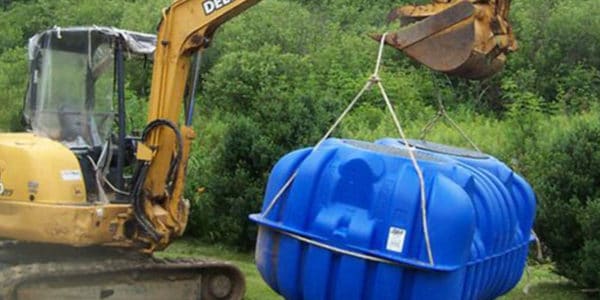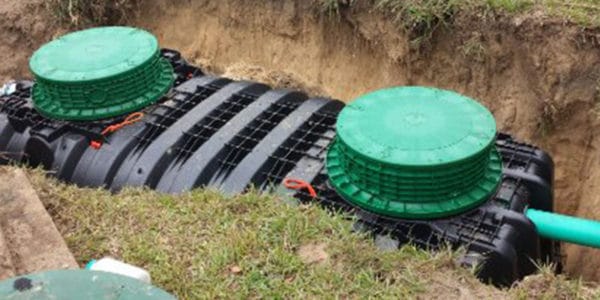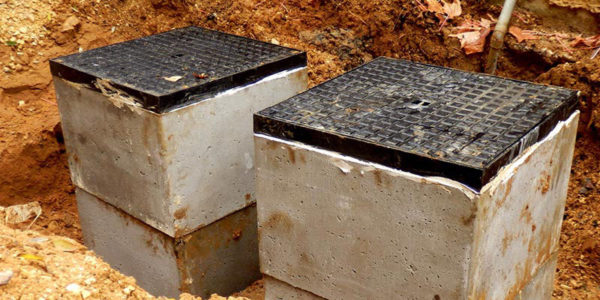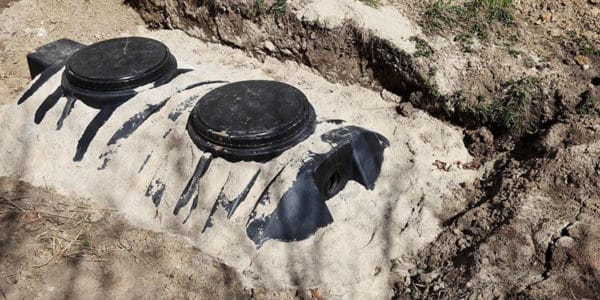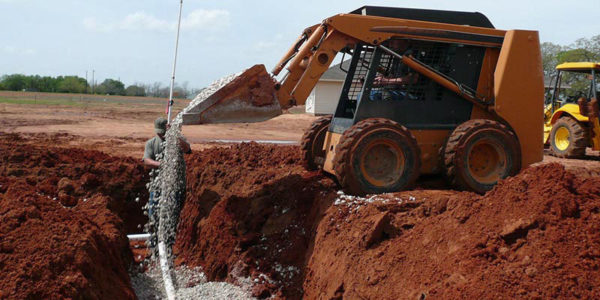Septic Tank Pumping Jim Thorpe, PA
A Jim Thorpe, PA septic tank system always uses natural processes to treat and dispose of the home waste water generated in your home. Your septic system typically consists of a septic tank and a drain field with a soil absorption field. The septic tank provides the first step in your usual septic treatment. As the waste water flows into the tank, the heavier solids settle to the bottom to form a sludge layer, and the lighter solids, greases and oils float to the top to form a scum layer. On a daily basis liquid waste water from the septic tank flows into gravel-filled trenches in a typical drain field where it is distributed via plastic pipes and then treated by the natural soil system.
Jim Thorpe Septic System Operation – Your septic tank provides some biological treatment of the sludge and scum layers that accumulate there. The majority of treatment occurs in the drain field where the effluent enters the soil and is treated as it percolates to the ground water. The natural soil acts as a biological and physical filter to remove harmful substances, including disease-causing bacteria and viruses, toxic organics and other undesirable wastewater constituents remaining in the tank
Outlet filters or what we call baffles are located in the tank and are designed to prevent the sludge and scum from flowing into the drain field. If the tank is not pumped regularly to remove the accumulated waste, the tank will fill with sludge and the solids will be washed out into the drain field and/or clog the outlet filter. If solids reach the drain field or clog the outlet filter, they will quickly clog the soil and eventually lead to septic system failure.
A septic tank wastewater in a Jim Thorpe, PA septic system can contaminate your ground water, surface water and your yard with nutrient and bacteria if it isn’t maintained properly and pumped often enough. By following these, you can help ensure that your septic system continues to function properly, safely and without septic odors.
- Please Inspect your septic system annually. Local septic pumpers can do this.
2. Make sure septic pumping is done regularly. Every three to five years is recommended by known experts. Smaller tanks should be pumped more often than that. This helps eliminate septic waste build-up that can clog your system.
3. Do not divert roof drains or basement sump pumps into septic pump systems. You want to drain as little water into them as possible.
4. Make sure to avoid or reduce the use of your garbage disposal. If you use a garbage disposal, have the tank pumped more frequently.
5. Don’t use your toilet as a garbage disposal! If you put lots of stuff down the toilet, you will need to have the septic tank pumped more often.
- Full service maintenance providers
- Septic tanks: Cleaning, Installation, Repairs, Replacement
- Cesspool cleaning
- Truck and car wash bays
- Restaurant grease traps
- Non-hazardous industrial liquid waste
- Electric eel services
- Septic system pumps and alarms
- Soil probes
- New septic systems

